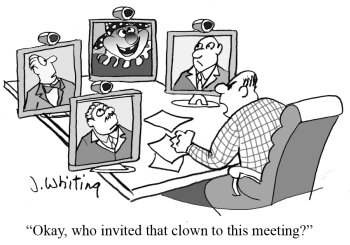Interview with S. McKay Price, continued.
Q: In the introduction to your paper on textual analysis of conference call tones, you describe a 2012 conference call in which David Einhorn grilled the management team of Herbalife, thereby causing the shares to fall 20 percent in price. Did you run the transcript of this conference call through your call tone algorithm, and if so, was it the most negative sample in the set?
2012 was not in our sample period so we did not specifically create tone measures for that Herbalife call. Although I suppose we could.
Q: You found that analyst tone has greater clout than manager tone. Did this change, depending on size of company or number of analysts participating in the call?
While we did control for the potential effects of firm size and analyst coverage in our analysis, the two variables were not very influential in this case (i.e. where we look at the stock returns immediately following the calls.) However, there are settings where size and analyst coverage matter a great deal (see response to next question.)
Q: Please comment on the relation between investor sophistication and the market’s ability to price call tone.
Sophisticated investors appear to do a better job of integrating more complex signals. We cannot tell with certainty whether they are more skilled than retail investors at digesting this type of information, or whether they are simply the only ones taking the time to listen to the calls. Regardless, they appear to have an advantage. This result is corroborated by a concurrent study (that I am involved in) which looks at whether short sellers (another subset of sophisticated investors) are more skilled than other traders at deciphering linguistic signals; and the evidence suggests that they are. [Ref.: “Do Sophisticated Investors Interpret Earnings Conference Call Tone Differently than Investors at Large? Evidence from Short Sales”, Benjamin M. Blau, R. Jared DeLisle, and S. McKay Price, Journal of Corporate Finance, 2015, Vol. 31, 203-219.]
Q: With linguistic studies such as this being reported, it seems to invite someone to game the system! Any comments?
If by “game the system” you’re referring to someone trying to create a trading strategy based on a textual analytic algorithm, then yes. However, I wouldn’t characterize using publicly available information as gaming the system. A few years ago I was approached by some hedge fund types who were interested in building a fund based on this line of research.
Q: Do you plan to extend your study to look at conference call tone as a function of the business cycle?
There are many extensions to this work that we are presently pursuing. We haven’t specifically looked at how tones change with the business cycle, although I suspect that call tones can be affected by macroeconomic conditions. Consequently, in our study we control for the potential influence of ups and downs in the market by including indicator variables which capture market-wide phenomena on a quarterly basis. ª
Click here to visit the website of S. McKay Price.


